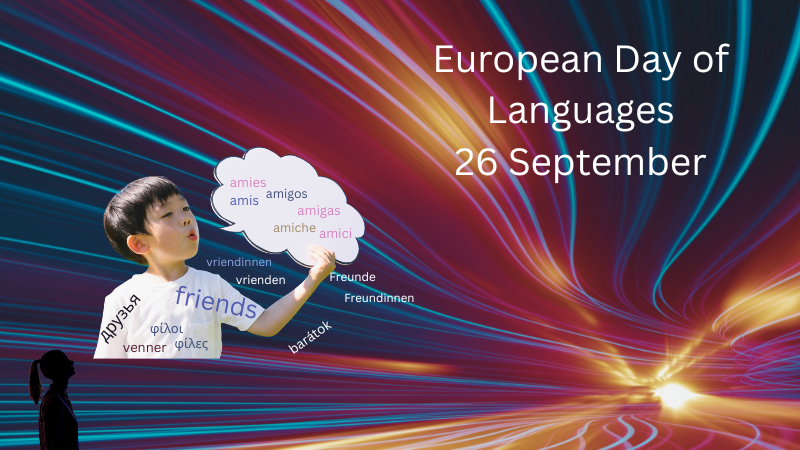One of the most entertaining (and sometimes embarrassing) aspects of learning another language is encountering false friends: words that look or sound familiar but carry different meanings.
Every year on 26 September, we celebrate the European Day of Languages, a chance to reflect on the joys of multilingualism. This year, we're going to look at "false friends".
Who or what are linguistic “false friends”?
False friends are words in two or more languages that look or sound alike but mean different things. They’re the tricksters of the language-learning world, ready to cause confusion, awkward moments, or a good laugh. Some classic examples:
- Spanish embarazada ≠ English embarrassed, though it might cause embarrassment when you misuse it because embarazada means pregnant in English.
- German Gift ≠ English gift, unless you wish to give someone poison.
- French Actuellement ≠English actually, it actually means currently.
Where do “false friends” come from?
False friends are part and parcel of linguistic evolution, and they appear for three main reasons:
- Semantic drift
Word meanings change over time. Two words from the same root may end up with different meaning in different languages, a little like siblings growing apart over time. For example, English actual and French actuel both come from Latin actualis (“active” or “practical”), but in English it means “real,” while in French it means “current.”
- Borrowing
Languages borrow words, sometimes changing the meaning along the way. For example:
- Alcohol: From Arabic al-kuḥl, originally a powdered chemical used in cosmetics; in English, it refers to ethanol beverages.
- Chef: From French meaning “leader” or “boss,” but in English “a head cook”.
- Foyer: From French “hearth” or “home,” while in English “the entrance hall of a building”.
- Patio: From Spanish meaning any courtyard; in English, usually a paved area behind a house.
- Coincidence
Some false friends just happen to look alike but have no shared history. For example, English much and Spanish mucho are unrelated despite their similarity.
What do “false friends” teach us?
Anyone who has studied a foreign language knows the danger. You think you’re saying something simple, but you get unexpected laughter or awkward silence. A famous example: a student learning French declares, “Je suis excité,” intending to say, “I’m excited,” but the teacher might hear “I’m aroused.”
Are “false friends” just annoyances that trip us up unexpectedly? Not at all. These slip-ups, while embarrassing, are part of what makes language learning memorable and fun. They remind us not to take ourselves too seriously.
Awareness of false friends can make us better and more attentive language learners and users. By forcing us to question assumptions, they sharpen our skills in semantics (the study of meaning) and pragmatics (language in context). They also reveal cultural differences, teaching humility, flexibility, and mindful communication.
How to avoid tripping over “false friends”?
While it might be fun to encounter false friends from time to time, we can reduce mishaps by:
- Learning words in context: Instead of memorising isolated vocabulary, read, listen, and practise sentences where the meaning is clear.
- Using dictionaries, not guesswork: If a seemingly familiar word reads odd in context, check it.
- Keeping a personalised “false friends” list: Write down confusing pairs to remember them next time.
- Laughing it off: Mistakes are part of the learning process. When you ask someone in France where the library is using librairie and get sent to a “bookshop”? Next time, you’ll know to say bibliothèque.
What now?
This European Day of Languages, let’s celebrate not only the words that bring us together but also the ones that sometimes mislead us. These so-called “false friends” may cause confusion, but they also enrich our understanding of how languages evolve. They make us smile, keep us humble, and remind us that every language is a living reflection of human history and culture.
To help you steer clear of linguistic “false friends” while making real friends in our vibrant learning community, we’re offering a wide range of exciting language courses. What are you waiting for?
Respond



